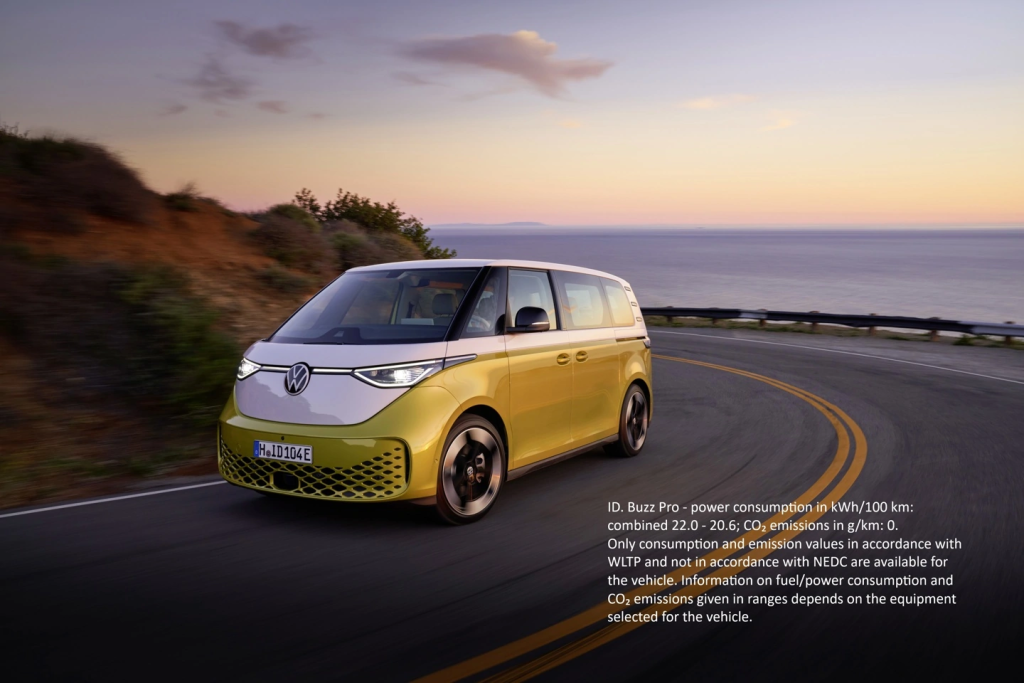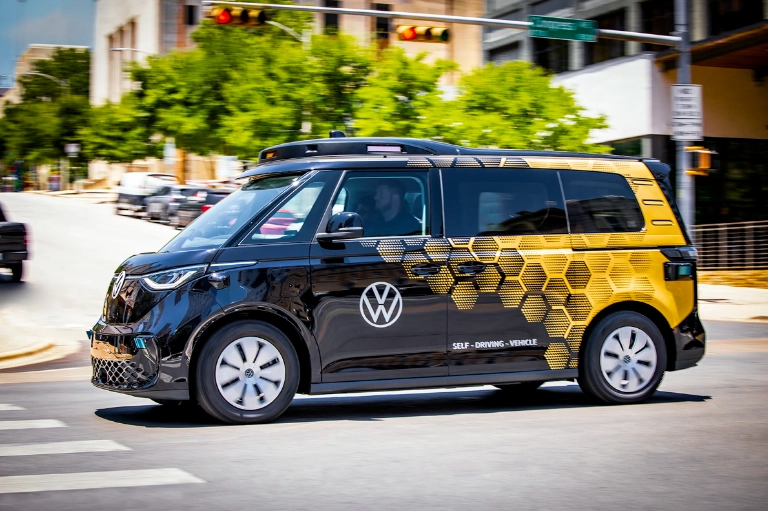
Volkswagen will start testing its self-driving ID Buzz in the US in 2023

Volkswagen ID Buzz
According to news in July, Volkswagen announced that it will start testing a self-driving version of the ID Buzz electric microbus in the United States.
The driverless vehicles will be tested on public roads in Austin, Texas, by the end of this month.
Volkswagen Commercial Vehicles is already making strides in developing autonomous vehicles for mobility and transport services.
Currently, the Volkswagen ID. Buzz AD self-driving car is ready for series production and will be tested on the road for the first time in the next few weeks.
In addition, Volkswagen also launched an autonomous driving test program in Austin, Texas, USA.
According to reports, the focus of the AD model development process is to use the model for commercial use in European and North American urban centers, including shared mobility solutions and transportation services.
It will bring decision-makers from the political, public and business spheres, as well as representatives of the media, so that they can Learn about the vehicle’s control capabilities.

Argo AI
It’s the latest move by Volkswagen after Volkswagen and Ford withdrew funding for self-driving startup Argo AI.
Argo AI’s plans to launch a driverless taxi service in the U.S. and Europe have shut down due to a lack of funding, casting a pall over the self-driving car industry, which has struggled for more than a decade to build a fleet of self-driving cars. business model.
Volkswagen’s self-driving ID Buzz was originally intended to use technology from Argo AI, but now the company is developing in-house hardware and software with its partner Mobileye.
The plan is to test the vehicles in Austin and four other U.S. cities over the next three years, with an unmanned taxi service launching in 2026 and a three-row ID Buzz for the U.S. market in 2024.
As part of the plan, Volkswagen is creating a new subsidiary, Volkswagen ADMT, with offices in Austin and Belmont, Calif.
The new unit will be made up of former employees left behind from the shutdown of Argo AI.
Auto ID Buzz vehicles equipped with fleet management and “remote guidance solutions” will also be sold to “other leading companies in the mobility and transport sector,” Volkswagen said.
This is the second time Volkswagen has launched a new subsidiary to tackle the self-driving challenge.
The company has been testing its self-driving ID Buzz in Germany and plans to launch a commercial driverless taxi and delivery service in 2025.
Volkswagen said it will put the vehicles into use as part of the shared-mobility fleet of its subsidiary Moia.
Volkswagen’s self-driving software is being developed by another subsidiary, Cariad, which has undergone several leadership changes over the past year.
The first 10 ID Buzz vehicles will be equipped with self-driving software developed by Mobileye, as well as sensors like cameras, radar and lidar.
Each vehicle will also have a trained safety driver behind the wheel to monitor its operation and take over control if it encounters an overwhelming situation.
All vehicles will be equipped with human safety officers and seat four passengers during the testing phase, and once ready for series production, will be mass-produced to meet growing mobility and transport needs.
Volkswagen has dabbled in autonomous driving for years, but not without setbacks.
In 2019, Volkswagen ended its partnership with Aurora Innovation, a self-driving startup founded by former Google self-driving head Chris Urmson.
Argo AI was co-founded by another former Google self-driving team member, Bryan Salesky.
I’ve noticed that some of Volkswagen’s competitors are well ahead, including GM’s Cruise and Hyundai’s Motional.
The two companies have launched an initial commercial robo-taxi service in the United States and plan to expand into new markets.
